What if the Splash Bros. had Wilt Chamberlain playing center? How many titles would the Lakers have won if Magic Johnson was running the break with Kobe Bryant and Shaquille O’Neal? Imagine Hakeem Olajuwon and James Harden teaming up in Clutch City.
We asked our NBA writers to come up with an all-time starting five for every current NBA franchise, along with one additional blast from the past. Only a player’s contributions during his time with that franchise were considered. (So, no, LeBron James doesn’t crack the Lakers’ all-time list … yet.)
In this era of “positionless” basketball, traditional positions don’t matter quite as much as they used to, so we allowed some flexibility in choosing a lineup — but you won’t see teams with four centers or three point guards. The idea was to dive into each team’s history and create a group that could at least potentially share the floor together.
We rolled out the Eastern Conference on Wednesday. Here is the Western Conference:

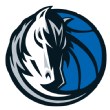
G: Derek Harper
G: Jason Terry
G: Rolando Blackman
F: Mark Aguirre
F: Dirk Nowitzki
Terry joins Nowitzki as the only players on both of the Mavs’ Finals teams and was the second-leading scorer on both squads. There’s a reason Harper and Blackman, the backcourt for some good teams that just couldn’t get past the Showtime Lakers, have their numbers in the American Airlines Center rafters. Aguirre’s jersey probably won’t ever be retired in Dallas because of his bitter departure, but you can’t dismiss his 24.6 points per game in eight seasons with the Mavs.
The toughest cuts: Michael Finley and Jason Kidd, one of whom helped a young German kid find his way in the NBA and the other who helped Nowitzki finally deliver a title to Dallas.
— Tim MacMahon
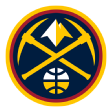
G: Fat Lever
G: David Thompson
F: Alex English
F: Carmelo Anthony
C: Dikembe Mutombo
You’re probably asking yourself the same question I debated for roughly 48 hours: Wait, no Nikola Jokic? There’s a good chance Jokic eventually becomes the greatest player in franchise history, but he’s just 25 years old.
Mutombo, on the other hand, is a Hall of Famer and produced probably the most iconic image in franchise history, celebrating the historic upset of the top-seeded Seattle SuperSonics in the 1994 playoffs. Mutombo is the defensive anchor behind a pure scoring lineup that could outgun just about anybody.
English, Anthony and Thompson all averaged better than 20 points a game for their careers, but at their peaks were pushing 30 PPG. Add in a floor general like Lafayette “Fat” Lever to pull the strings, and it could work. Between Fat, Melo and Dikembe, the Nuggets can outname just about anybody, too.
— Royce Young
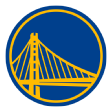
G: Stephen Curry
G: Klay Thompson
F: Kevin Durant
F: Draymond Green
C: Wilt Chamberlain
Adding Chamberlain to the Durant-era Warriors teams that won back-to-back titles would just be unfair. Can you even imagine how dominant that team would be? Curry, Thompson, Durant and Green already have won titles together — and now they have one of the greatest big men of all time to drop the ball to down low? Unbelievable. The defense is great, the offense is otherworldly.
It’s tough leaving Hall of Famers Rick Barry and Chris Mullin out of this group, but who would come out? Curry and Thompson form the best shooting backcourt of all time. Durant is one of the best players of his generation and Green provides the defensive intensity and glue that has propelled them for years — plus those four already have played together. There is no stopping this team. A juggernaut for the ages.
— Nick Friedell
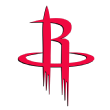
G: James Harden
G: Calvin Murphy
F: Tracy McGrady
F: Rudy Tomjanovich
C: Hakeem Olajuwon
Apologies to Hall of Fame big men Elvin Hayes, Moses Malone and Yao Ming, but it’s hard to get one center in the Houston lineup these days. Of course, there’s no debate about the candidacy of Olajuwon, who remains the best player in franchise history, even after Harden’s run of historic offensive production.
Harden is 22 points away from passing Murphy for second on the Rockets’ career scoring list, so for now the flamboyant, 5-foot-9 Murphy continues to be the only player who ranks among the franchise’s top two in points and assists.
Rudy T is best remembered as the Clutch City-era coach and for the brutal punch that interrupted his playing career, but he earned his spot here with five All-Star appearances during a career spent entirely in a Rockets uniform.
— MacMahon

G: Chris Paul
F: Kawhi Leonard
F: Blake Griffin
F: Elton Brand
C: Bob McAdoo
Paul and Griffin authored the greatest and most exciting era in Clippers basketball with Lob City. Paul spent six seasons with the Clips, was first-team All-NBA three times and led the league in assists twice during that span. Griffin was Rookie of the Year, a five-time All-Star and the exciting, above-the-rim player the franchise sorely needed.
Brand spent seven seasons with the team and made both of his All-Star appearances as a Clipper. McAdoo started his Hall of Fame career when the franchise was in Buffalo, where he led the league in scoring three straight seasons and was MVP in 1974-75.
Leonard is just 51 games into his Clippers tenure, but his elite production already puts him on this roster. Averaging 26.9 points, 7.3 rebounds and 5.0 assists, a healthy Leonard can further validate this choice if he can get the Clippers to the conference finals for the first time.
— Ohm Youngmisuk
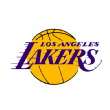
G: Magic Johnson
G: Jerry West
G: Kobe Bryant
F: Kareem Abdul-Jabbar
C: Shaquille O’Neal
Four of these picks were no-brainers. Johnson (fifth in career assists) teamed up with Abdul-Jabbar, the NBA’s career scoring leader, to win five championships. Bryant (fourth all time in scoring) paired with O’Neal (eighth in scoring) to win three.
The fifth pick was harder. Is it Elgin Baylor, the greatest small forward in franchise history? Or how about LeBron James, the greatest small forward in NBA history? How about James Worthy, who teamed up with Magic and Kareem and won a Finals MVP?
Ultimately, the pick is West. Baylor never won a ring. James hasn’t been a Laker long enough. Worthy would have to play the 4 and you already have Shaq and the Captain on the blocks. The Logo brings shooting and toughness and leadership, and he is extremely important to the franchise as a whole for his post-playing days in the front office.
— Dave McMenamin
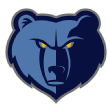
G: Mike Conley
G: Tony Allen
F: Shareef Abdur-Rahim
F: Zach Randolph
C: Marc Gasol
The question with the Grizzlies: Who should be the final player to fill out a lineup that features the Grit ‘n’ Grind mainstays called the Core Four? (I’d make a joke about Chandler Parsons‘ max contract, but I want to be welcomed back to Memphis.)
Based purely on merit, Pau Gasol would be the pick, but he doesn’t fit alongside his brother Marc at center and Randolph at power forward. So we will go with Abdur-Rahim, who was a really good player for some really bad teams in Vancouver, averaging 20.8 points and 8.2 rebounds per game over five seasons in which the Grizzlies went a combined 86-292.
— MacMahon

G: Ricky Rubio
G: Sam Cassell
F: Kevin Garnett
F: Kevin Love
C: Karl-Anthony Towns
The three best players in franchise history just all happen to be big men: Garnett, Love and Towns. Garnett is the franchise leader in points, rebounds, steals, assists and blocks; he’s the only player in NBA history to lead a team in all five categories. Towns (22.7 points, 11.8 rebounds in 358 games) and Love (19.2 points, 12.2 rebounds in 364 games) each put up monster numbers, even though playoff success never came.
(Side note: Towns is only 14 3-pointers away from becoming the franchise’s all-time leader. Seriously.)
Rubio trails only Garnett in franchise history in steals and assists. Since Wally Szczerbiak and Andrew Wiggins were primarily listed as small forwards, the other guard spot goes to Cassell, who only played two years in Minnesota but had a career year and was a second-team All-NBA selection in 2003-04.
— Andrew Lopez

G: Chris Paul
G: Jrue Holiday
F: Jamal Mashburn
F: David West
C: Anthony Davis
(Just a reminder: The Pelicans’ franchise history starts in 2002, when the team moved from Charlotte to New Orleans. Anything before that belongs to Charlotte, even though it’s the same franchise. Got it? Cool, let’s move on.)
First, the locks: Davis, Paul, Holiday and West. Now once you get to the wing … oof. This spot came down to four players — Mashburn, Peja Stojakovic, Eric Gordon and, yes, Brandon Ingram.
Mashburn, in the franchise’s first season in New Orleans in 2002-03, made the All-Star team and was a third-team All-NBA selection. The Pelicans didn’t get another All-Star selection from a wing player until this year, when Ingram made it. But with only 56 games under his belt, Ingram falls off this list. Gordon’s time in New Orleans always seemed underwhelming. Stojakovic was a key cog on the 2007-08 team that won a franchise-best 56 games, but he struggled with injuries.
Mashburn was limited to 101 games for New Orleans, but his impact in Year 1 was unmistakable and he still sits second on the team’s career scoring average list (21.5), behind only Davis.
— Lopez
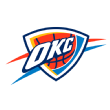
G: Russell Westbrook
G: James Harden
F: Kevin Durant
F: Paul George
F: Serge Ibaka
There’s an irony to the Thunder’s all-time starting five, because it features their best sixth man. The baggage of Harden’s role looms large, whether he wanted to come off the bench, whether starting impacted his contract negotiations and ultimately facilitated the breakup of one of the greatest organically built superteams ever. That’s a lot to unpack.
Hindsight and what-ifs aside, the Thunder’s all-time group can stand with almost any in NBA history, and most certainly is among the most stout in the past 20 years. The Thunder have been around for just 12 years and boast a remarkable cupboard of talent: three MVPs (Durant, Westbrook, Harden) and piles of All-NBA and All-Star nods. Maybe one of the best examples of how deep they are is in showcasing who didn’t make the cut: Carmelo Anthony and Chris Paul. Not a bad bench.
— Young
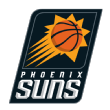
G: Steve Nash
G: Kevin Johnson
F: Walter Davis
F: Charles Barkley
C: Amar’e Stoudemire
No Shawn Marion? No Paul Westphal? No Alvan Adams? No Larry Nance? No Jason Kidd? You can make a solid starting five from the next group of Phoenix legends.
The franchise’s two MVP winners, Nash and Barkley, were locks. Westphal split time as a point guard and shooting guard during his six seasons, but we give the nod at the other guard spot to Johnson, who spent 12 years in Phoenix, and had three consecutive 20-point, 10-assist seasons and five All-NBA nods.
Davis vs. Marion was a tough battle. Both made a pair of All-NBA teams (two second-teams for Davis compared to two third-teams for Marion), but Davis gets the edge as the franchise’s leading scorer. At center, Stoudemire stands supreme as his four All-NBA honors best Adams’ longevity.
— Lopez

G: Damian Lillard
G: Clyde Drexler
G: Brandon Roy
F: LaMarcus Aldridge
C: Bill Walton
As with any conversation about Blazers history, their starting five comes with plenty of introspective sighing and deep what-iffing. Injuries to Walton and Roy abbreviated what would’ve been legendary Portland careers. But at their best versions, Walton was a transcendent big man with unique skills, and Roy was a gifted scorer with a knack for the moment.
Drexler is a Hall of Famer who led Portland to its best sustained run of success in franchise history. Aldridge is one of the dominant scoring big men of his era, and Lillard will likely go down as the franchise’s all-time best. The Blazers are haunted by history and a compulsion to live in the anguish of what could’ve been, but there is also a beauty to their all-time five. It represents who they are, and forever, what they might’ve been.
— Young
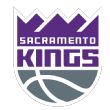
G: Oscar Robertson
G: Tiny Archibald
F: Peja Stojakovic
F: Chris Webber
C: Jerry Lucas
A Hall of Fame backcourt of Robertson and Archibald knocks Kings great Mitch Richmond out of one of the two guard spots. Lucas, another Hall of Famer, averaged 19.6 points and 19.1 rebounds in six seasons with the Cincinnati Royals. He gets the center position.
For the forwards, we look at two Kings from the early 2000s, when Sacramento was a perennial playoff team. Stojakovic is still the franchise’s leader in 3-pointers made, and Webber averaged 23.5 points, 10.6 rebounds, 4.8 assists, 1.5 steals and 1.5 blocks in 377 career games in Sacramento.
It feels weird not to have DeMarcus Cousins on the all-time Kings squad, but when you look back at the franchise’s history — which dates back to the Rochester Royals and their first year in the NBA in 1949 — it becomes clearer why he doesn’t make the cut.
— Lopez
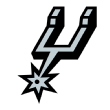
G: Tony Parker
G: Manu Ginobili
F: George Gervin
F: Tim Duncan
C: David Robinson
It took about as long as the average Gregg Popovich sideline interview to come up with this squad. These were all easy decisions, considering each player’s combination of greatness and longevity with the Spurs. (Kawhi Leonard would have been in strong consideration if not for the lack of the latter.)
Duncan and Robinson are on the short list of MVPs who played their entire careers for one franchise. Ginobili and Parker were essential parts of a dynasty. Gervin was a must-see superstar whose presence made sure that pro basketball stuck in small-market San Antonio.
— MacMahon
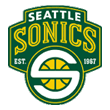
Seattle SuperSonics
G: Gary Payton
G: Gus Williams
F: Detlef Schrempf
F: Shawn Kemp
C: Jack Sikma
Payton, Kemp and Sikma, the three players to make at least five All-Star appearances in Sonics uniforms, are the three certain selections here. At the other guard spot, there are strong cases for Fred Brown (who’s second in career scoring) and Ray Allen (a four-time All-Star in Seattle), but Gus Williams’ key role in the Sonics’ 1979 championship and pair of All-NBA picks give him the nod.
Spencer Haywood reached greater heights and Rashard Lewis had more longevity, but with the last spot I’m going with Schrempf, whose versatile and efficient game was ahead of its time in the 1990s.
— Kevin Pelton

G: John Stockton
G: Pete Maravich
F: Adrian Dantley
F: Karl Malone
C: Rudy Gobert
The Jazz’s arena is located at the intersection of Stockton and Malone, with statues of the legends prominently featured out front, so we figured those guys should make the cut. Dantley was a historically elite scorer for the Jazz, averaging 29.6 points on 56.2% shooting and winning a pair of NBA scoring titles during his seven-season tenure in Utah.
Gobert gets the nod over fellow dominant defensive anchor Mark Eaton because he’s a far superior offensive player and rebounder. It was difficult not to include Darrell Griffith, aka “Dr. Dunkenstein,” but Pistol Pete was too productive (25.7 points and 5.7 assists per game) with the New Orleans Jazz to be left out.
— MacMahon